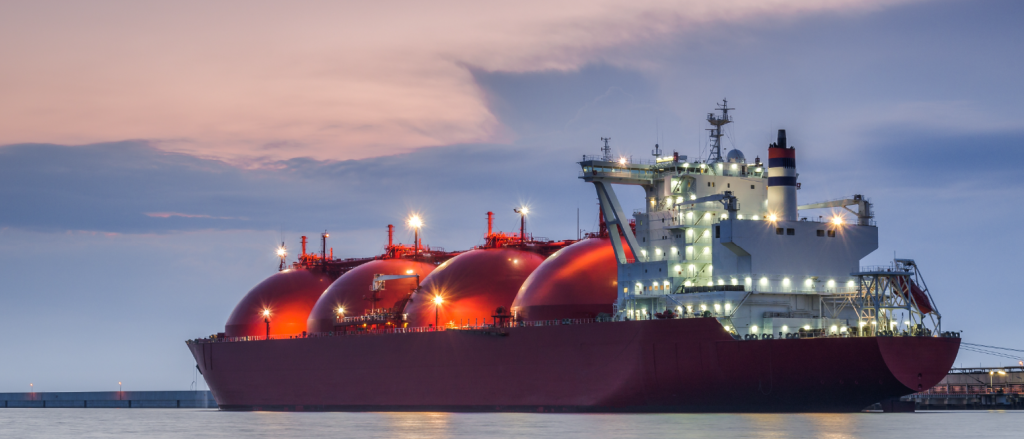Why is LNG so crucial to the global economy? And where does Kelton fit in?
An interview with Stuart Christie
We asked Stuart Christie, who recently re-joined Kelton as Operations Director from Woodside Energy, and previously Qatargas, about the importance of LNG and why it plays such a significant role in the world today.
Stuart, so what is LNG and why is it important?
LNG (Liquified Natural Gas) is something that many people outside of the energy sector have never heard of. Yet it’s a crucial part of peoples’ lives in the UK and in much of the rest of the world, especially Asia. We use gas from LNG to heat our homes and offices, to cook, and for industry such as in aluminium smelters and fertiliser plants. In fact, it’s an essential fuel source for the 21st century.
As we have seen recently in the UK and elsewhere, when there is a shortfall of LNG it is noticeable as energy prices rise and consumers and industry are hit.
Why is LNG so important and its use so widespread?
LNG’s volume is about 600 times smaller than that of gaseous natural gas meaning that it can be transported in large quantities around the world much more easily.
On arrival at its destination, LNG is re-gasified and used in the same way as natural gas so that’s why most people aren’t aware of its origins.
LNG’s flexibility means that it can be shipped around the world to places that have the highest demand such as Asia and Western Europe. With coal demand falling globally, LNG, a lower carbon alternative, has stepped up.

It’s only in recent weeks when LNG has been in such demand in Asia that other regions in the world have suffered from a gas crunch, such as Europe.
With such high demand we can’t expect global LNG prices to drop any time soon. This illustrates LNG’s importance – it’s literally an energy source that we can’t do without.
Where does LNG fit into the energy mix? Shouldn’t we be looking at lower carbon fuels such as hydrogen?
LNG is above all a transition fuel – but a crucial one. Indeed, according to research conducted by global asset management firm, AllianceBernstein, global new installed LNG liquefaction capacity is set to increase massively by 2025. This shows its importance in the energy transition.
This demand comes from Asia and from countries such as Pakistan and India, which are seeking to lower their carbon emissions by transitioning from coal to gas (LNG) while ensuring energy security and growing living standards.
We need to adapt to the energy transition, but this isn’t going to happen overnight and by helping countries transition to LNG we are enabling them to wean themselves off an overreliance on coal.
It should also be noted that much of the technology that is used in the LNG market such as metering systems can be transferred to low carbon energy sources such as hydrogen – this is something that Kelton is looking at currently.
What does the global LNG market mean for Kelton?
We consider ourselves to be the measurement experts in LNG with decades of experience from around the world. No other company can provide clients with an end-to-end 360-degree measurement solution in LNG like we can.
In fact, we help the major LNG countries and companies to produce LNG at active volumes. This includes rundown, storage, loading and offloading of LNG from ships at with traceable measurement uncertainty, thereby minimising the financial exposure to seller and buyer.
We have a huge opportunity to deliver the measurement solutions that enable the global market to grow, and even more efficiently and sustainably.
In fact, over the years Kelton has provided the global LNG industry with project, design, assessment, audit, uncertainty evaluation and maintenance support on some of the largest and globally important LNG measurement systems. We have supported the development of Country hydrocarbon measurement guidelines – this is why Kelton is the LNG measurement expert.
I’ve heard you’ve done a lot of work in Qatar – what does that look like?
Qatar is a great case study of how Kelton has supported a country’s LNG sector particularly as the state is the world’s dominant player in the sector. We’ve worked in partnership through contracts in Qatar for many years as an integral part of the country’s operations. We’ve grown just as they have, and we hope to continue supporting them and other clients in the Middle East region and beyond for the foreseeable future.
Indeed, I was fortunate enough to spend over a decade working on some of the most interesting and demanding LNG projects while in Qatar. When the call of returning home became louder, it was a no-brainer to return to Kelton after having spent some of the most formative years of my career at the company over a decade ago.
In my new role I’m going to be Kelton’s lead consultant on global LNG – while I’ll be based in the UK, I will get out on the road regularly and hope to catch up with as many contacts face-to-face as soon as I can. If we’ve not spoken in a while, please get in touch for a catch up – I’d love to hear from you!
How would you describe Kelton and its work in LNG in a few words?
‘Peerless measurement specialist’.
With thanks to Stuart Christie, Operations Director at Kelton.
Stuart would very much like to hear your thoughts on the piece above and can be contacted directly on: stuart.christie@kelton.co.uk
The LNG measurement experts.World-leading capability and experience.
Kelton has been providing expert flow measurement consultancy services to LNG plants for over two decades. This includes both liquefaction and re-gasification plants around the world.
Learn more about Kelton’s world-leading LNG capability and experience.
